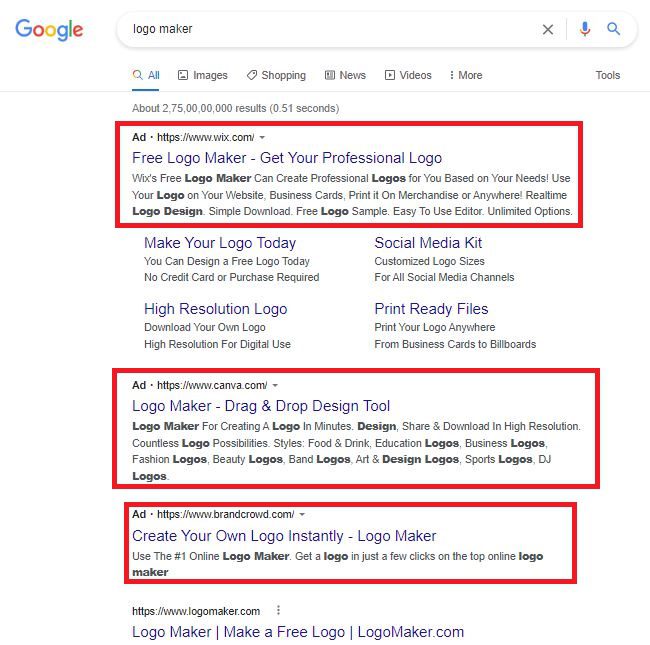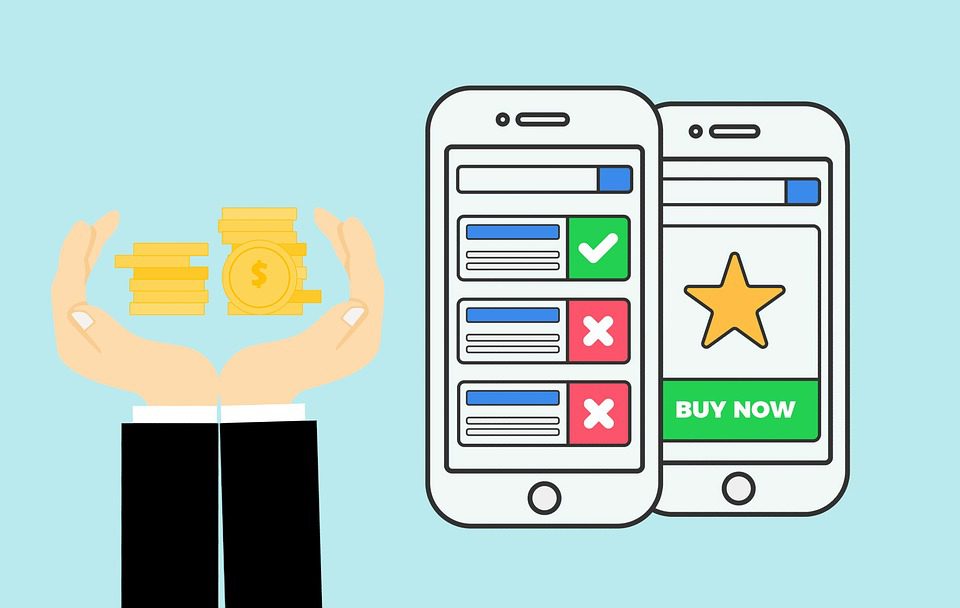
Introduction
With this internet advertising guide, you will bring new customers to your business. We’re here to guide and show you how to market your company to Internet customers looking specifically for your product/service. Whether you are a seasoned Internet user or brand new to the net, you will have an Internet advertising campaign set up within 30 minutes! Immediately after set up, potential customers can do a Google Search and see your ad in one of the top positions. This can only be possible via an effective PPC ads campaign.
Before deep-diving into the topic, you first need to understand PPC ads and what is Google PPC advertising.
Let’s start with the following:
PPC (Pay-Per-Click) Meaning

PPC stands for pay-per-click. It is an advertisement technique where advertisers can publish their ads on a particular keyword—a search term and phrase that directly applies to their product or service and pay each time a user clicks on their ads.
And their product or service listing appears whenever their chosen keyword, search term, or phrase is searched on the search engine.
The costs or pay-per-click part of this search method only comes into play if the person is searching clicks on the advertiser’s listing. Thereby making them go directly to the advertiser’s website.
The advertiser’s account is charged the agreed amount for the search (amounts can be as little as 1 cent).
Example:
Suppose your account has $100. You bid 3 cents on the keyword “Web design.” When someone searches for “Web Design,” they would see your website as one of the Google search results. You can achieve this through Google PPC advertising.
If they click on your link and get to your website, your account will be charged 3 cents. Your new account balance would be $99.97.
This method has proven successful and beneficial for advertisers and searchers.
Advertisers benefit because they know they are getting target traffic for search terms they select. And at a price, they want to pay-per-click.
Advertisers know that the people who click on their listing are explicitly searching for their product or service as determined by the selected search term.
Searchers benefit because they get search results directly related to what they are looking for on the web. And not just what some automated robot or spider thought would be a good match for them.
How Does PPC Advertising Work?
With Pay-Per-Click ads, you choose keywords or keyphrases that people will type into their web browser when looking for your product or service.
When potential customers type the keywords/key phrases you have set up in your campaign, an ad for your site is listed.
When they click on your ad, they will land on your website. And you pay a small cost for that one click. You only pay for the clicks that you get.
Cost per Click (CPC) is the amount you are willing to “bid” for that click.
For example, if your business sells cell phones and your key phrase is “mobile phone,” your click cost will be high because you compete with many other companies worldwide.
Everyone is trying to outbid the other so that they can have their ad appear at the top of the page. Remember that the top bidder always gets their ad in the first place.
Why Should You Do Pay-Per-Click Advertising?

Below are a few of the primary reasons to do pay-per-click advertising:
Reason # 1
The Internet is the best source for finding information worldwide. More and more businesses are steering clear of print marketing and turning to the Internet.
This is because it continues to prove that it generates business. Let me ask: When you want to look up a product or service, do you go to the phone book or the Internet?
People going to the Internet to find their answers typically click one of the first five links displayed by search engines. With pay-per-click, you can be one of those five.
Reason # 2
The second reason you should do pay-per-click is that it is one of the only forms of advertising you don’t pay for until a customer comes to your business (via your website, of course.)
Reason # 3
Google Ads will give you FREE credit card processing when you do Pay-Per-Click ads. No catch! Here’s how it works: for every dollar you spend on pay-per-click, you multiply that number by 10.
And that is how much FREE credit card processing you get: no monthly or transaction fees.
So, for example, if you spend $200 per month on pay-per-click. You will be entitled to $ 2,000 worth of free monthly credit card processing.
Anything over $2000 is $0.20 per transaction + a 2% fee (probably better than your current merchant service).
So take that couple hundred (thousand?) dollars you use to pay credit card fees each month and turn it into marketing dollars!
Key Takeaways
- Establish Reporting Goals: Before diving into PPC reporting, defining what success looks like for your accounts is crucial.
- Inclusion of Essential Elements: PPC reports should be tailored to meet unique goals. However, some common elements include date range, conversions, and cost per click.
- Focus on Key PPC Strategies: Concentrating on conversion goals, ad types, and first-party data targeting is important.
- Leverage Automation: With the advent of new technologies and feature enhancements, managing smart settings through automation can simplify ad management.
What is the difference between SEO and PPC?
There’s a massive difference between PPC and SEO because PPC is a paid advertising technique where the amount is charged when someone clicks on your published ads.
On the contrary, SEO is an optimization technique where your product or service ranks in Google. It ultimately brings organic traffic without paying.
However, search engine optimization requires a lot of expertise and initial investment to buy backlinks, etc., to rank in Google.
How Do PPC Ads Make Money?

PPC ads make money when the searcher clicks on the advertiser ads, and the advertiser pays a fee each time the searcher clicks on their ads. Simply put, it’s a way of buying visits to our sites.
FAQ
What is PPC marketing?
PPC, or Pay-Per-Click, is one of the types of online advertising where advertisers pay for ads each time their ads are clicked. It’s a technique of buying site visits rather than organically driving those visits.
What are some examples of PPC?
Here are some examples of PPC (Pay-Per-Click) campaigns:
- Search Ads: These are the most common type of PPC ad, appearing on search engine results pages. For example, if you search for “running shoes,” you might see ads at the top of the results from various shoe companies.
- Display Ads: These are visual banner ads that appear on websites participating in Google’s Display Network. For instance, a clothing retailer might use display ads to showcase their latest collection on fashion blogs or news sites.
- Social Media Ads: Platforms like Facebook, Instagram, and LinkedIn offer PPC advertising options. A local restaurant, for example, might use a Facebook ad to promote its new menu.
- Remarketing Ads: These are targeted ads shown to individuals who have previously visited your website. For example, an online bookstore might use remarketing ads to remind you about the book you viewed but didn’t purchase.
- Google Shopping Ads: Product-based ads appear in Google’s shopping tab. For instance, if you search for “wireless headphones,” you’ll see ads with images, prices, and store information for various headphones.
How does SEO differ from PPC?
SEO (Search Engine Optimization) and PPC are methods used to attract visitors to your website, but they work in fundamentally different ways.
SEO involves optimizing your website’s organic ranking in search engine results. This involves keyword optimization, quality content creation, and building high-quality backlinks.
On the other hand, PPC involves paying for ads on search engines and other platforms. While SEO takes time to build and see results, PPC can provide immediate visibility on search engine results pages.
Conclusion
Now that you understand how PPC (Pay-per-click) works, you can start your PPC ads campaign and drive potential results.
Feel free to leave a comment if you found this helpful post.
More Resources:
7 Best Programmatic Ads Platforms To Use In 2023
YouTube Ads: Use YouTube Video Ads To Grow Your Business

Vijay Kumar is a digital marketing expert and founder of TechZant.
He is passionate about helping businesses grow their online presence through SEO and data-driven strategies.




